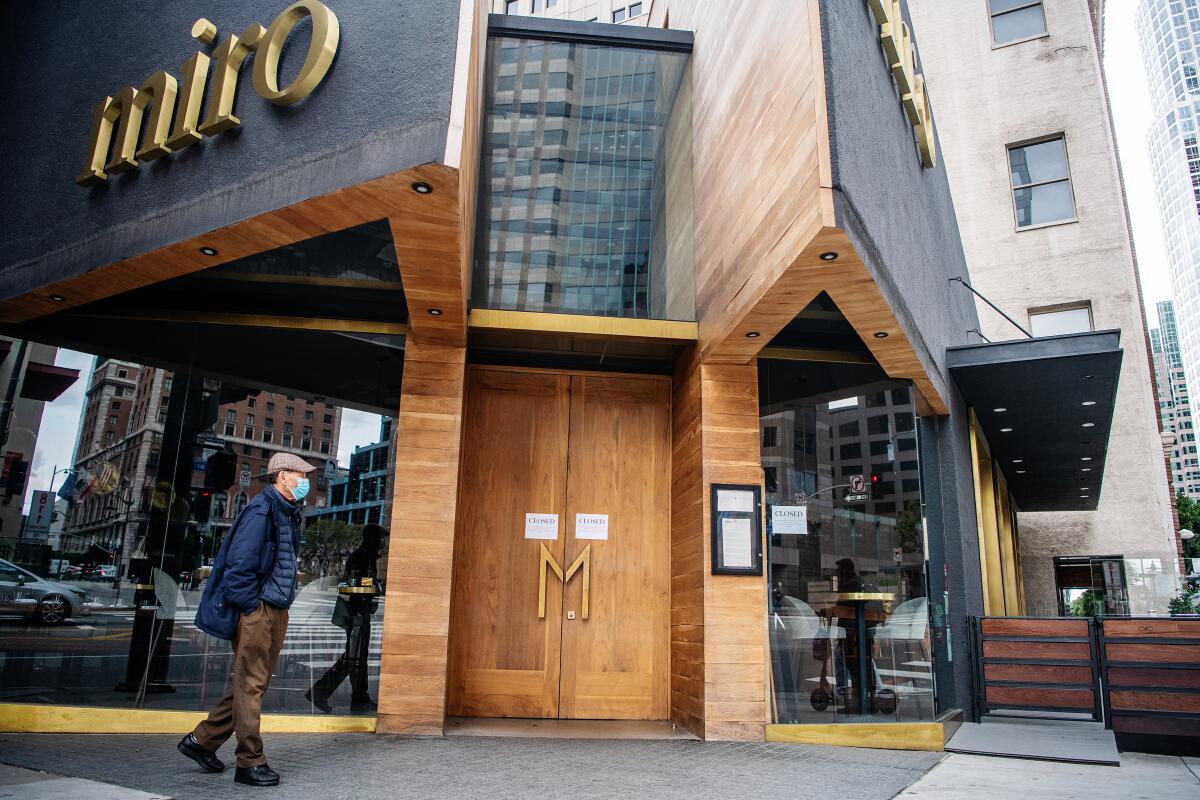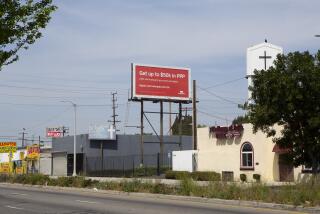Congress passes PPP loan reform bill aimed at helping struggling restaurants

- Share via
The Senate on Wednesday passed legislation giving more flexibility to recipients of the Paycheck Protection Program, which has provided thousands of restaurants and other small businesses around the country with funds intended to keep them afloat during the COVID-19 pandemic.
The largely bipartisan bill, which overwhelmingly passed in the House last week and is now headed to President Trump, is expected to be signed into law soon. Once enacted, it will loosen key rules regarding how businesses are allowed to spend their PPP money and on what terms they’ll be required to repay it.
In a statement Wednesday, the Independent Restaurant Coalition cheered the move but cautioned further aid for restaurants would still be needed.
“Even with these changes, many restaurants will still have a hard time surviving the crisis we’re in,” the statement read. “The pandemic is a long-term problem and these PPP fixes are only the beginning of a solution.”
Under terms of the new bill, the minimum portion of PPP funds that must be spent on employee payroll would be lowered to 60% from 75%. The remainder can be spent on rent, utilities and other business-related expenses.
The amount of time loans can be used has been extended to 24 weeks from eight, while those businesses whose loans aren’t converted into grants now have five years for repayment instead of two years.
For small restaurants already granted PPP loans, such as Konbi in Echo Park, fixes to the program are welcome, if overdue.
“The changes are a good step, but if this was the format of the program when it originally came out, that would have been much more helpful,” said Akira Akuto, Konbi’s chef-owner. “We’ve already spent most of our [PPP] money to keep our employees paid, so now we’ll probably use whatever is left on rent and utilities.”
The $660-billion program, created in March as part of the nearly $2-trillion CARES Act, has provided nearly 4.5 million small businesses with an infusion of cash, though many were initially unable to receive funds during a rollout hampered by technical glitches and overwhelmed banks.
Businesses employing up to 500 workers are eligible for forgivable loans of as much as $10 million. The average loan is about $114,000, according to the Small Business Administration.
With an estimated $120 billion left in the PPP fund — which Congress replenished in late April after the fund hit its initial cap — experts expect more businesses to apply for loans in the coming weeks thanks to the loosened restrictions.
“I think businesses that were initially on the fence about taking PPP loans are now strongly considering it,” Akuto said. “If you spend it right, it’s basically free money.”
More to Read
Eat your way across L.A.
Get our weekly Tasting Notes newsletter for reviews, news and more.
You may occasionally receive promotional content from the Los Angeles Times.










